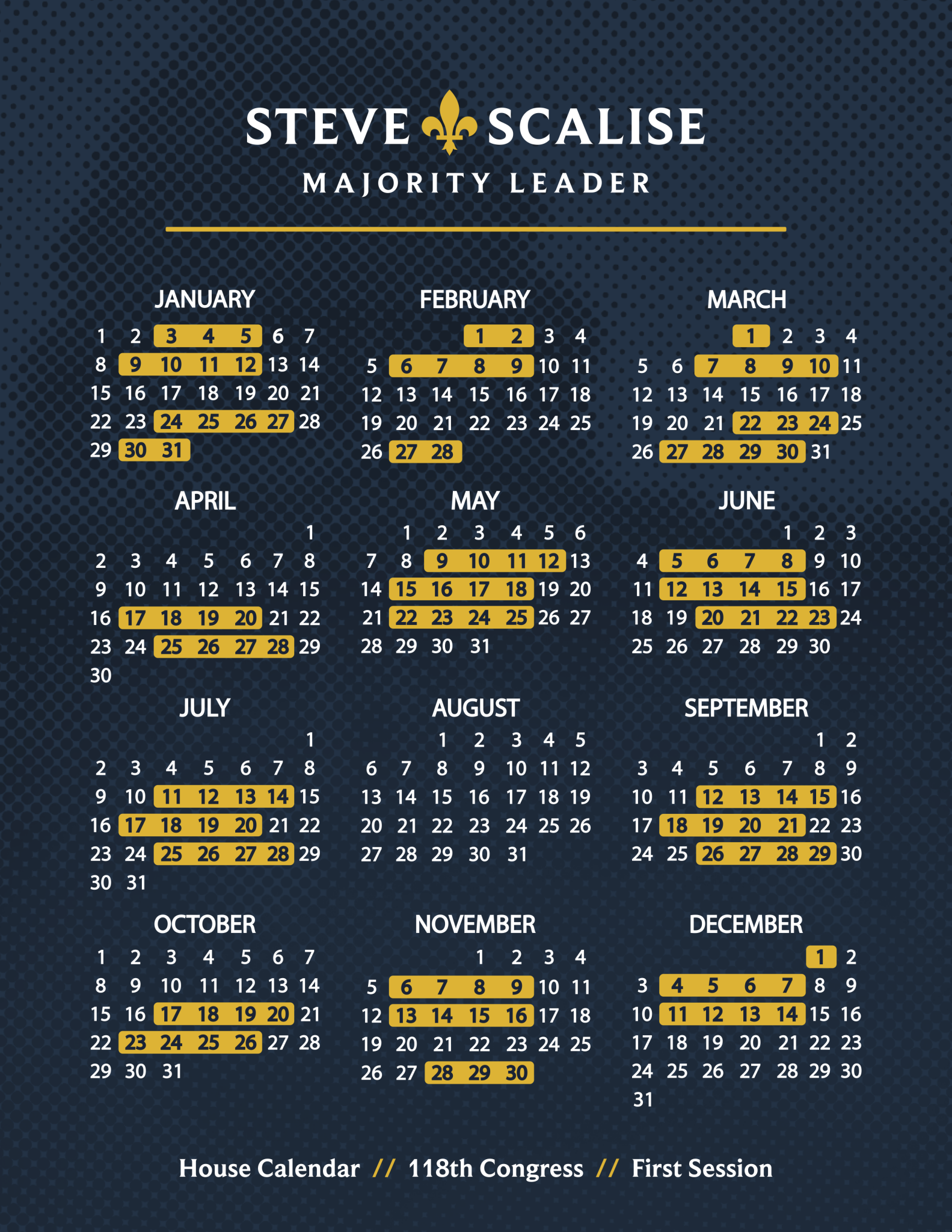Table Of Content

Pelosi first beat Hoyer for whip in 2001 and she backed a challenger to Hoyer for majority leader when Democrats last took control in 2006. The 116th Congress officially convened on Thursday with Democrats taking control of the House of Representatives for the first time in eight years. And with Democrats' newfound power and Republicans' first time in the minority in nearly a decade, both parties saw a shuffle in their leadership teams. The House is one of Congress’s two chambers (the other is the U.S. Senate), and part of the federal government’s legislative branch. The number of voting representatives in the House is fixed by law at no more than 435, proportionally representing the population of the 50 states.
Pelosi Retakes Gavel As House Speaker With New Session Of Congress

From "What are the requirements to be president?" to "Who's running for president?" to "Is Election Day a federal holiday?" − we're striving to find answers to the most common questions you ask every day. The minority party chooses not to take a position on an issue, perhaps because of intraparty divisions. Although her views on social issues remain unpopular with some of her MSP colleagues, she was one of the few SNP ministers who did not delete her WhatsApp messages during the COVID pandemic. With the local election campaign well under way, Labour is still sitting comfortably ahead, with the Tories trailing behind. The Sky News live poll tracker - collated and updated by our Data and Forensics team - aggregates various surveys to indicate how voters feel about the different political parties.
Democratic Leadership
New House Majority Leader Ben Bowman motivated by solving problems • Oregon Capital Chronicle - Oregon Capital Chronicle
New House Majority Leader Ben Bowman motivated by solving problems • Oregon Capital Chronicle.
Posted: Wed, 27 Mar 2024 07:00:00 GMT [source]
An earlier version of this article incorrectly identified the political party of a group of representatives who notably voted “no” on new aid for Israel. Jeffries is set to lead a Democratic party that will lose its majority in the House of Representatives for the first time since 2018. In a speech following the vote on Wednesday, Jeffries said the party would reach across the aisle to work with Republicans.
The Leader’s Floor Lookout: Tuesday, April 30, 2024
The opposition to the Israel aid represented a minority of Democrats, but reflected the deep resistance to unconditional aid and the divisions in the party on Gaza. Representative Jamie Raskin of Maryland represented a notable new “no” vote among Democrats, and other standouts included Representatives Donald S. Beyer Jr. of Virginia, Earl Blumenauer of Oregon and John Garamendi of California. Echoing one of the many grievances shared by hard-right Republicans who opposed all of the aid measures, Mr. Good said his support for “Israel’s right to defend itself remains unshakeable” but that he disagreed with a measure that would add to the nation’s debt. The plan, laid out in a rule that passed on Friday, was concocted to capitalize on the pools of support for each part of the $95 billion package, while preventing opposition to any one piece from taking down all of them.
Before examining the institutional and party assignments of the minority leader, it is worth highlighting the historical origin of this position. With the Republicans holding a majority of seats and the Democrats holding a minority, the current leaders are Majority Leader Steve Scalise of Louisiana and Majority Whip Tom Emmer of Minnesota, Minority Leader Hakeem Jeffries of New York, and Minority Whip Katherine Clark of Massachusetts. However, the Greens announced last week they would not support the first minister in a confidence vote after Mr Yousaf scrapped the powersharing agreement between the party and the SNP, which eventually led to his political downfall. But the wider motion of no-confidence in the government - which was put forward by Scottish Labour on Friday - is still set to be voted on tomorrow. Scottish Greens co-leader Patrick Harvie has told Sky News his party will not be backing a motion of no-confidence in the Scottish government which is due to be voted on tomorrow. “And it will show the world that American leadership is still alive and well, and we are still a strong protector of democracy, and provider of humanitarian aid.
As there is no legislation at the federal level mandating one particular system for elections to the House, systems are set at the state level. As of 2022, first-past-the-post or plurality voting is adopted in 46 states, ranked-choice or instant-runoff voting in two states (Alaska and Maine), and two-round system in two states (Georgia and Mississippi). Senator Murray has led efforts to extend U.S. support for Ukraine—and as Appropriations Chair, she has pushed at every step of the way to ensure Congress approves a comprehensive national security supplemental with aid for our allies and desperately needed humanitarian assistance. Senator Murray has blocked repeated attempts to pass a standalone military assistance package for Israel without humanitarian assistance for innocent civilians in Gaza—or aid for Ukraine—and she has insisted on passage of a comprehensive package to address the interrelated national security challenges. After Democrats and Republicans negotiated and released a new comprehensive supplemental which included both border policy and funding provisions, Senate Republicans then blocked consideration of that comprehensive package in a vote.
Enter your ZIP code in the banner of this page to find the representative for your congressional district. Former Rep. Kevin McCarthy, R-CA, was the speaker of the House from Jan. 7 to Oct. 3, 2023. It took 15 rounds of voting to elect McCarthy into the position, the first time in more than a century that the process of electing a speaker took more than one ballot. Nominations have now opened in the SNP leadership contest to find a replacement for First Minister Humza Yousaf after he announced he was stepping down yesterday.
Like the Speaker of the House, the Minority Leaders are typically experienced lawmakers when they win election to this position. When Nancy Pelosi, D-CA, became Minority Leader in the 108th Congress, she had served in the House nearly 20 years and had served as minority whip in the 107th Congress. Gephardt's predecessor in the minority leadership position was Robert Michel, R-IL, who became GOP Leader in 1981 after spending 24 years in the House. Michel's predecessor, Republican John Rhodes of Arizona, was elected Minority Leader in 1973 after 20 years of House service. From 1910 to 1975 committee and subcommittee chairmanship was determined purely by seniority; members of Congress sometimes had to wait 30 years to get one, but their chairship was independent of party leadership. The rules were changed in 1975 to permit party caucuses to elect chairs, shifting power upward to the party leaders.

He narrowly lost a bid to become governor of Minnesota in one of the closest elections in state history. Four years later, he was first elected to Congress, winning the seat vacated by the conservative firebrand Michele Bachmann. Just two years later, Emmer, in the same role, faced blowback after Republicans only narrowly won the House, making far fewer gains than anticipated. In the wake of the disappointing results, he faced stiff competition in his bid to become the majority whip though he ultimately prevailed on the second ballot.
The presiding officer is the Speaker of the House, who is elected by the members thereof. Other floor leaders are chosen by the Democratic Caucus or the Republican Conference, depending on whichever party has more voting members. In the House of Representatives the majority leader's presence and power often depends on the session. In some sessions, the majority leader takes precedence over the speaker as House leader and legislative party leader either by force (which usually occurs when the speaker of the House is unpopular) or because the speaker of the House voluntarily surrenders power to the majority leader. In most sessions, the speaker of the House takes precedence as house leader and party leader, with the majority leader being irrelevant and largely powerless outside the fact they might be speaker of the House one day. Except, of course, for the fact that the majority leader (as well as the speaker and the minority leader) are the only members of the House that can speak on the floor for an unlimited amount of time and cannot be interrupted by the chair.
"It is hard to believe that House partisans would place a man in the speakership when in the majority, and nominate him for this office when in the minority, and not look to him for legislative guidance."[28] This was not the case, according to some observers, with respect to ex-Speaker Keifer. In most states, major party candidates for each district are nominated in partisan primary elections, typically held in spring to late summer. In some states, the Republican and Democratic parties choose their candidates for each district in their political conventions in spring or early summer, which often use unanimous voice votes to reflect either confidence in the incumbent or the result of bargaining in earlier private discussions. Exceptions can result in so-called floor fights—convention votes by delegates, with outcomes that can be hard to predict. Especially if a convention is closely divided, a losing candidate may contend further by meeting the conditions for a primary election. The courts generally do not consider ballot access rules for independent and third party candidates to be additional qualifications for holding office and no federal statutes regulate ballot access.
[T]he constitutional prerogative of the House has been held to apply to all the general appropriations bills, and the Senate's right to amend these has been allowed the widest possible scope. The largest committee of the House is the Committee of the Whole, which, as its name suggests, consists of all members of the House. The Committee meets in the House chamber; it may consider and amend bills, but may not grant them final passage. Generally, the debate procedures of the Committee of the Whole are more flexible than those of the House itself. One advantage of the Committee of the Whole is its ability to include otherwise non-voting members of Congress.

No comments:
Post a Comment